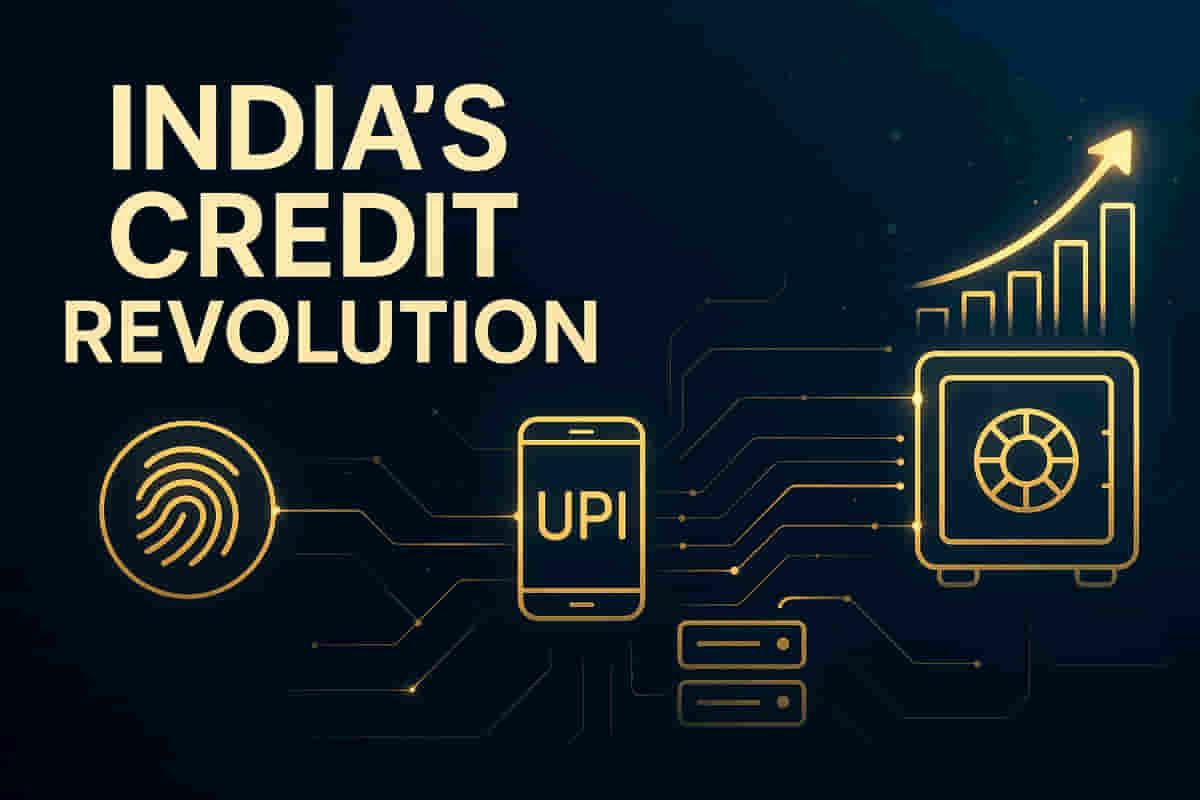Digital Public Infrastructure Revolutionizes Credit Access for First-Time Borrowers in India
Economy
|
Updated on 30 Oct 2025, 08:30 am
Reviewed By
Aditi Singh | Whalesbook News Team
Short Description :

▶
Detailed Coverage :
Digital Public Infrastructure (DPI) is fundamentally changing credit assessment in India. Previously, lenders relied heavily on past repayment records and credit bureau scores, which excluded many individuals without a formal borrowing history. Now, DPI enables a shift towards a data-driven model where alternative data points are crucial. Fintech companies like CASHe, KreditBee, and Nira are leveraging information such as rent payments, e-commerce purchases, and digital cash flows to create credit profiles for first-time borrowers. Paramdeep Singh, founder of Long Tail Ventures, highlights that with widespread adoption of Aadhaar, UPI, and the Account Aggregator network, lenders can now use verified digital cash flows, with user consent, instead of traditional credit scores. This is expected to significantly reduce loan approval times and broaden access to formal credit.
Sarika Shetty, Co-founder & CEO of RentenPe, points out that rent payments, often the most consistent financial activity for tenants and urban migrants, are now being integrated into the credit system via the Account Aggregator system. Borrowers can securely share data from multiple sources, including salary credits and digital payment history, providing lenders with consent-based, verified information. This allows for a move from static identity checks to dynamic, behavior-based eligibility assessments, recognizing everyday financial discipline.
Impact: This shift promotes significant financial inclusion, enabling millions who were previously excluded to access loans. It also speeds up the lending process by relying on real-time, verifiable data, thereby boosting economic participation and reducing reliance on informal, high-interest lending. The rating for the impact on broader access to credit in India is 9/10.
Difficult Terms: Digital Public Infrastructure (DPI): A set of shared digital services and platforms that enables public and private sectors to deliver services efficiently, such as identity, payments, and data exchange. Creditworthiness: The likelihood that a borrower will repay a loan, based on their financial history and behavior. Collateral: An asset that a borrower offers to a lender as security for a loan. Credit Bureau Scores: A numerical representation of an individual's credit risk, based on their credit history. Credit-Invisible: Individuals who have little to no credit history, making it difficult for lenders to assess their creditworthiness. Aadhaar: A unique 12-digit identification number issued by the Unique Identification Authority of India (UIDAI) to residents. UPI (Unified Payments Interface): An instant real-time payment system developed by the National Payments Corporation of India (NPCI). Account Aggregator Network: A framework that allows individuals to securely and digitally share their financial data from various sources (banks, NBFCs, insurance companies, etc.) with consent. KYC (Know Your Customer): A process of verifying the identity of customers, required by financial institutions. Digital Cash Flows: Income and expenditure that are transacted and recorded digitally.
More from Economy
Latest News

Auto
Suzuki and Honda aren’t sure India is ready for small EVs. Here’s why.

Brokerage Reports
Stocks to buy: Raja Venkatraman's top picks for 4 November

Mutual Funds
Quantum Mutual Fund stages a comeback with a new CEO and revamped strategies; eyes sustainable growth

Tech
Why Pine Labs’ head believes Ebitda is a better measure of the company’s value

Banking/Finance
SEBI is forcing a nifty bank shake-up: Are PNB and BoB the new ‘must-owns’?

Industrial Goods/Services
India’s Warren Buffett just made 2 rare moves: What he’s buying (and selling)
Renewables Sector

Renewables
Brookfield lines up $12 bn for green energy in Andhra as it eyes $100 bn India expansion by 2030
Startups/VC Sector

Startups/VC
a16z pauses its famed TxO Fund for underserved founders, lays off staff
Renewables Sector

Brookfield lines up $12 bn for green energy in Andhra as it eyes $100 bn India expansion by 2030
Startups/VC Sector
